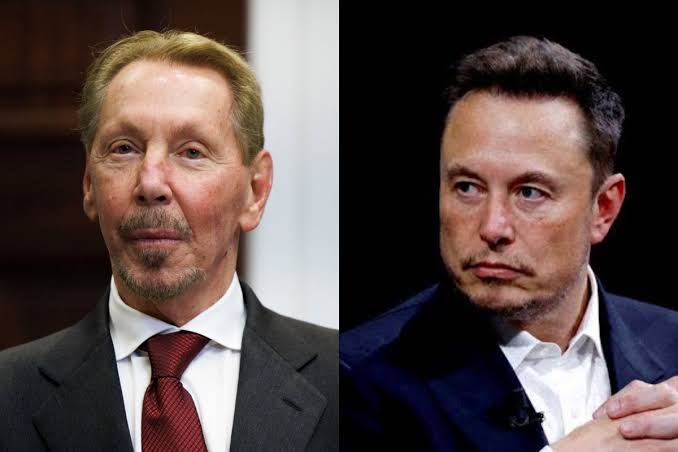
Larry Ellison Overtakes Elon Musk as Oracle Stock Soars $101 Billion in a Day

In a single trading day that rewrote the rules of billionaire wealth, Oracle co-founder Larry Ellison saw his net worth skyrocket by an unprecedented $101 billion, catapulting him past Elon Musk to claim the title of the world’s richest man.
The surge came as Oracle shares jumped 43% on September 10, 2025, after the company delivered a groundbreaking AI-driven cloud-computing forecast, triggering its biggest stock rally since 1992.
The scale of the wealth shift stunned global markets. Ellison, long known as one of Silicon Valley’s most strategic players, now sits atop the rich list at a time when Musk’s fortunes have been shaken by legal and corporate headwinds.
Forbes reports that Musk’s $56 billion Tesla stock option package, once the largest in corporate history, was voided by a Delaware court in 2024. The ruling sliced a massive chunk from Musk’s valuation, underscoring the volatility of modern tech fortunes where billionaires rise and fall on boardroom decisions and market sentiment.
For Ellison, the rally is the payoff of a decades-long gamble on cloud infrastructure. Oracle’s expansion to 71 data centers for hyperscalers worldwide has positioned it as a formidable competitor to Microsoft, Amazon, and Google in the AI arms race. “This is just the beginning of what AI workloads will demand from global infrastructure,” Ellison told investors, crediting the company’s aggressive buildout for the surge in future revenue expectations.
The timing of Oracle’s ascent could not be more symbolic. While Musk has directed much of his energy into SpaceX — now valued at $400 billion — and his fledgling AI firm xAI, Ellison has stayed laser-focused on enterprise software and the cloud backbone that powers artificial intelligence. The divergence reflects two competing visions of the future: Musk’s interplanetary ambition versus Ellison’s bet on the computing revolution shaping industries on Earth.
The scale of Ellison’s windfall is difficult to overstate. A single-day gain of $101 billion ranks among the largest ever recorded for an individual, dwarfing previous surges seen during pandemic-era stock rallies. Business Insider notes that this was Oracle’s most significant leap since the early 1990s, when Ellison was still considered an upstart competing with Microsoft in the database wars. Now, more than three decades later, he has not only outlasted many rivals but also leapfrogged the man who once embodied the pinnacle of tech wealth.
Musk’s supporters argue that his focus on long-term ventures — reusable rockets, global internet satellites, and artificial intelligence research — places him in a different category of risk and vision than Ellison’s more traditional enterprise strategy. Yet for now, markets are rewarding what they can measure: revenue growth, profit margins, and immediate infrastructure needs driven by AI.
The reshuffling at the top of the billionaire rankings also reveals broader truths about the economy. Tech wealth is no longer dominated solely by consumer-facing products like smartphones and electric cars but increasingly by the invisible scaffolding of data centers, cloud computing, and AI models running silently behind the scenes. Ellison’s moment of triumph is as much about Oracle’s strategy as it is about the new direction of technological dominance.
For investors and ordinary onlookers alike, the spectacle of $101 billion added in a day is both astonishing and sobering. It underscores the widening gap between billionaire fortunes and everyday struggles with inflation and cost of living. Yet it also captures the raw drama of capitalism at its most unforgiving: one day at the top, the next on the ropes.
For now, Larry Ellison enjoys a view from the summit of wealth few have ever known. Whether he can hold onto it in the volatile race against Musk and other tech titans remains the billion-dollar question.


